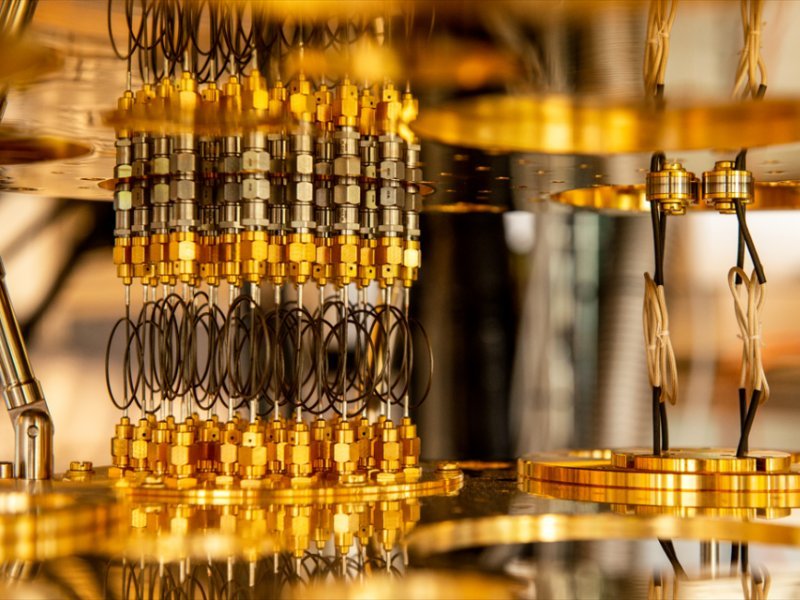Federal Labor has said its $1 billion commitment to develop and commercialise critical technologies will help to reverse Australia’s slide down innovation rankings by helping local researchers bridge the valley of death.
The fund was launched Friday at the Sydney Nanoscience Hub, a state-of-the-art $150 million University of Sydney facility, with its star spin out, quantum company Q-CTRL, backing more support for early-stage technologies.
Q-CTRL chief executive Professor Michael Biercuk said the investment in the Nanoscience Hub and the quantum research occurring in it had already paid dividends and helped position Australia at the front of a “transformational” global shift to quantum technologies.
“It’s only been around since about 2016. But in that time Q-CTRL, the company that I founded, is the first commercial outcome from the research that we’ve done here. And it is currently valued at several multiples of the overall investment in this building, which is really an extraordinary statement about fundamental science translating to economic outcomes,” Professor Biercuk said.

The $1 billion Critical Technologies Fund – a sub-fund of Labor’s $15 billion National Reconstruction Fund – will provide more investment in Australian science and technology companies through loans, equity and guarantees.
Labor says the fund will create more companies like Q-CTRL and help uncover the next homegrown technology like Wi-Fi or the Cochlear bionic ear.
“But in this day and age the question comes very quickly, what’s next? While those things are fantastic, and something to be celebrated, we have to think, what’s next,” Shadow Industry Minister Ed Husic said.
“This fund will give us the platform the financial investment to see what happens next – very important for the future of the economy and a total contrast to a Coalition that’s always there for the photo op and never there for the follow up.”
Labor has flagged key areas including quantum computing, artificial intelligence, robotics and software development for support from the fund, and is banking on Australia’s research excellence in the fields eventually creating new industries.
Professor Biercuk said early support for deep technologies was particularly important for companies like Q-CTRL to expand in markets like Australia.
“We know that one of the biggest challenges we face is continued access to growth capital to support us expanding our presence on shore, especially in a market like Australia which is a little bit smaller than the United States, which has a less mature venture capital market,” he said.
“Continued investment by government is a critical aspect of advancing this kind of deep technology and from my personal experience working at [Defense Advanced Research Projects Agency], one of the leading research funding agencies in the United States, I know how powerful government as customer can be, how powerful government as tech underwriter can be.”
Shadow Science Minister and Deputy Leader Richard Marles said the Coalition had failed to support the areas of technology excellence over the last decade and Australia’s economic complexity, commercialisation rates and manufacturing sectors had suffered as a result.
“Australian now ranks dead last in the OECD in terms of manufacturing capability,” Mr Marles said.
“We are falling down the Harvard Index of Economic complexity, which measures the modernity [and] technological capacity of economies. So, whereas you’ve got Japan as the highest tech economy in the world today under Scott Morrison, Australia now ranks 86.
“We’re sandwiched between Uzbekistan and Paraguay. That is the country that Scott Morrison has built.”
Do you know more? Contact James Riley via Email.

